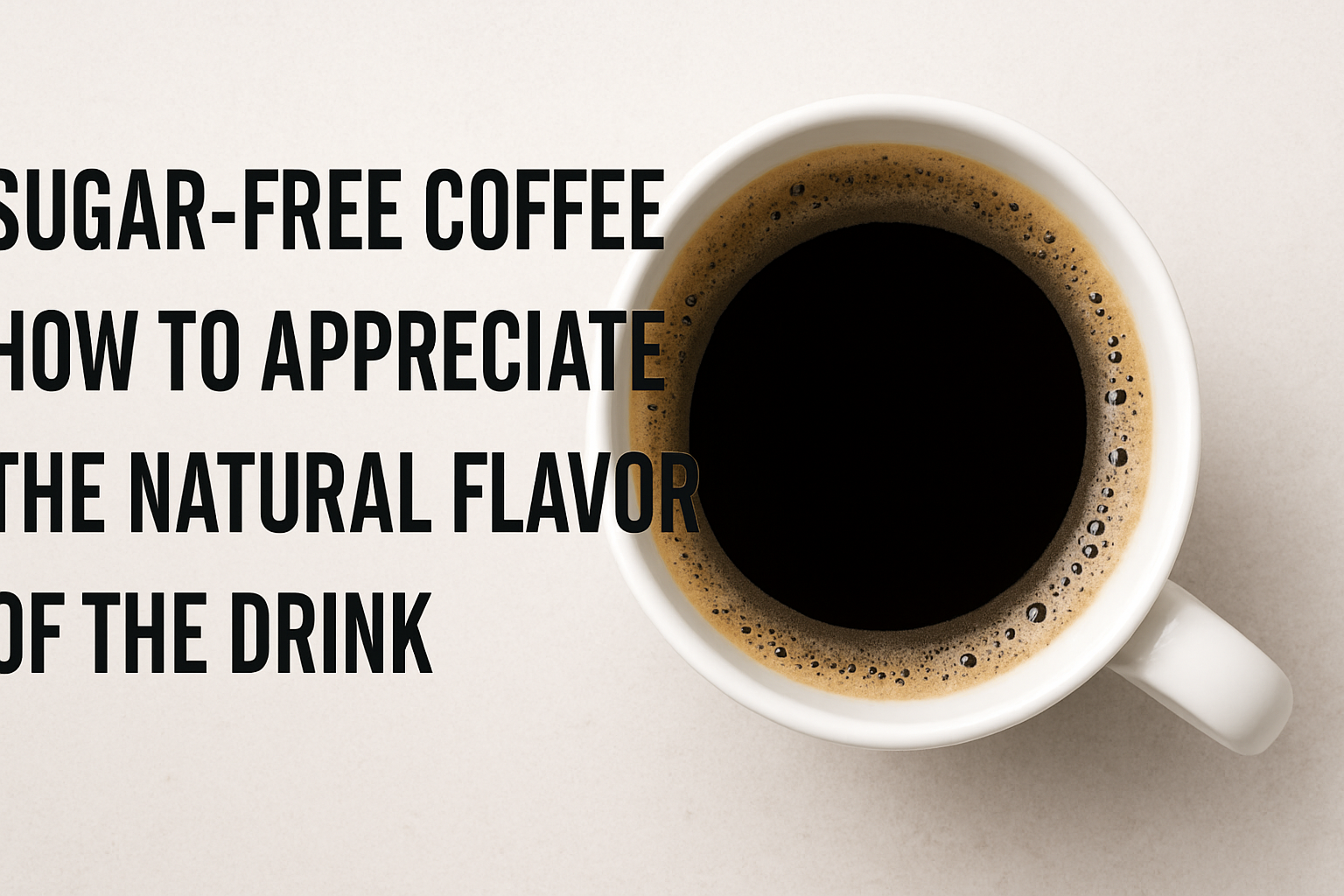For many people, coffee and sugar are inseparable. A spoonful or two of sugar has long been the standard way to cut the natural bitterness of coffee and make it more palatable.
However, an increasing number of coffee lovers are choosing to drink their coffee without any added sweeteners. While this change might seem small, it can transform your coffee experience entirely, allowing you to fully appreciate the complex flavors and aromas of the beans.
Learning to enjoy coffee without sugar is not only a matter of taste but also a step toward a healthier lifestyle and a deeper connection with the beverage.
Why Drink Coffee Without Sugar?
The most obvious reason is health. Excess sugar consumption is linked to a range of health issues, including weight gain, type 2 diabetes, and increased risk of heart disease. Even small amounts of sugar in your coffee can add up over time, especially if you drink multiple cups a day.
Cutting sugar from your coffee helps reduce your daily intake without sacrificing the pleasure of a good brew. Beyond health, drinking coffee without sugar gives you a clearer taste of the bean’s natural profile.
High-quality coffee beans have unique flavor notes—such as chocolate, caramel, nuts, citrus, or even floral hints—that sugar often masks. Without sweeteners, your palate becomes more sensitive to these nuances, turning every sip into a more sophisticated experience.
Understanding Coffee’s Natural Flavor
Coffee flavor is influenced by several factors:
- Origin: Beans grown in Ethiopia often have fruity, floral notes, while Brazilian coffee tends toward chocolatey, nutty flavors.
- Variety: Arabica beans are generally smoother and more complex, while Robusta beans are stronger and more bitter.
- Processing method: Washed coffees often taste cleaner and brighter, while natural processed coffees can be sweeter and more full-bodied.
- Roast level: Light roasts preserve more of the bean’s natural acidity and complex notes, while dark roasts have deeper, smokier flavors.
When sugar is removed, these differences become much more noticeable, making each cup an exploration of taste.
How to Transition to Sugar-Free Coffee
If you’re used to heavily sweetened coffee, going sugar-free overnight can be a shock to your taste buds. Instead, consider a gradual approach:
- Reduce sugar slowly: Start by using half your usual amount, then gradually decrease over several days or weeks.
- Switch to better coffee: Lower-quality coffee often tastes harsher, making sugar seem necessary. Invest in good beans from reputable roasters.
- Experiment with brewing methods: Methods like pour-over, AeroPress, and French press can highlight different aspects of coffee flavor.
- Adjust the grind and brew time: Over-extraction can make coffee bitter, while under-extraction can make it sour. A balanced brew is naturally more pleasant.
Enhancing Flavor Without Sugar
If you miss the complexity that sugar brings, there are other ways to enhance your coffee without adding sweetness:
- Use fresh, high-quality beans: Freshly roasted beans have more vibrant flavors.
- Mind your water quality: Filtered water can improve the clarity and taste of your coffee.
- Experiment with milk: Steamed or frothed milk adds natural sweetness and creaminess without sugar.
- Try spices: Cinnamon, nutmeg, or cardamom can add warmth and complexity.
- Drink it at the right temperature: Extremely hot coffee can be more bitter. Let it cool slightly before sipping.
Appreciating Bitterness as a Flavor
Many people dislike coffee without sugar because they associate bitterness with unpleasantness. However, bitterness is one of the five basic tastes, and in coffee, it can provide balance to sweetness and acidity.
With time, your palate can learn to appreciate this balance. This is similar to how people acquire a taste for dark chocolate, black tea, or certain beers.
The key is to focus on the overall flavor profile rather than isolating the bitter elements.
The Role of Mindset and Ritual
Part of learning to enjoy coffee without sugar is psychological. Treat each cup as a tasting experience rather than just a caffeine fix.
Smell the aroma before sipping, take small sips to notice the different flavor stages, and pay attention to how the taste changes as the coffee cools.
Making coffee drinking a mindful ritual can greatly enhance your appreciation for its natural qualities.
Health Benefits Beyond Sugar Reduction
Removing sugar from your coffee doesn’t just cut calories. It can also:
- Reduce the risk of dental cavities and gum disease.
- Help regulate blood sugar levels throughout the day.
- Allow you to enjoy multiple cups without excessive calorie intake.
- Encourage better hydration if you replace sugary drinks with black coffee.
Common Myths About Sugar-Free Coffee
- Myth 1: Coffee without sugar is too bitter to enjoy – Good beans brewed well can be smooth and naturally sweet.
- Myth 2: Only coffee experts can drink it black – Anyone can learn to appreciate sugar-free coffee with patience.
- Myth 3: Sugar doesn’t affect the flavor much – Even a small amount can dramatically change the taste balance.
Final Thoughts
Enjoying coffee without sugar is a journey. At first, you may miss the familiar sweetness, but with each cup, your palate will adapt, allowing you to appreciate the subtle flavors hidden within.
This shift not only benefits your health but also connects you more deeply to the origins, processing, and brewing methods behind your coffee.
Whether you prefer a light Ethiopian roast with fruity notes or a bold Colombian with chocolate undertones, drinking coffee sugar-free invites you to experience the drink in its purest, most authentic form.
